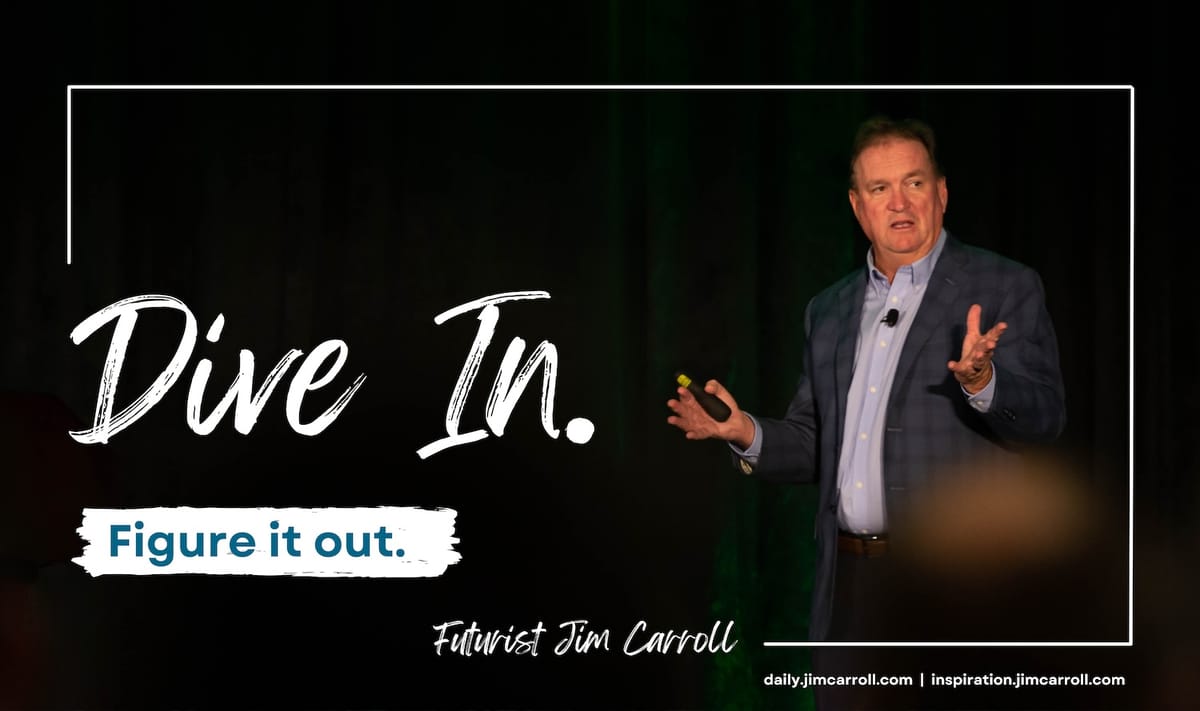"Dive In. Figure it out" - Futurist Jim Carroll
My attention was drawn last week to an article about Amazons' thinking behind a big bet on artificial intelligence;
Amazon built a $2 trillion company through years of aggressive spending on its retail and logistics businesses. Its future gains will likely be determined by the billions designated to fund its artificial-intelligence push.
Amazon is planning to spend more than $100 billion over the next decade on data centers, an impressive level of investment even for a company known for its spending ways. The Seattle company is now devoting more investment money to its cloud computing and AI infrastructure than to its sprawling network of e-commerce warehouses.
Amazon Web Services, the arm that manages Amazon's cloud business, has opened data centers for years, but executives said there is a surge in investment now to meet demand triggered by the excitement around AI.
"We have to dive in. We have to figure it out," said John Felton, who took over as AWS's chief financial officer this year after spending most of his career in Amazon's retail fulfillment operations.
Amazon, Built by Retail, Invests in Its AI Future
The freshly minted $2 trillion company is now investing more on data-center infrastructure than on retail warehouses
The Wall Street Journal Online, 30 June 2024
And there you have it right here. "We have to dive in. We have to figure it out." Later in the article, the CFO observes, "It's a little uncertain."
You think?
But is that any reason to hold back? Not according to Amazon. And history seems to prove that taking big, bold bets often turns out to be quite right.
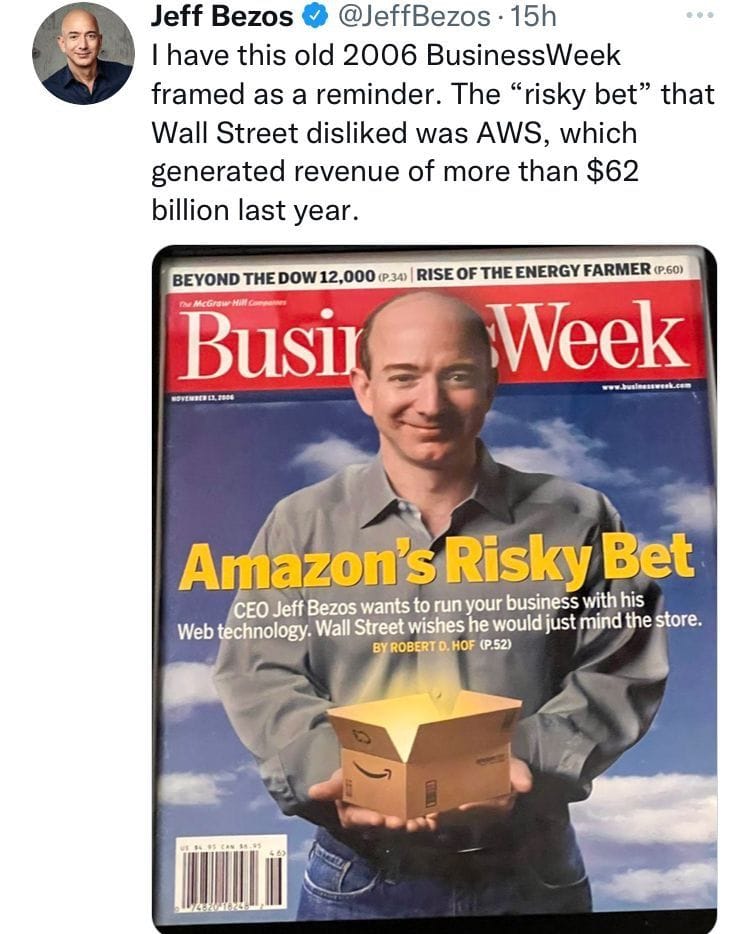
Their risky bet on their cloud business has turned into a multi-billion dollar business, and today, overshadows Amazon's main line of business of selling stuff.
Of course, detractors of Amazon's big, bold bets are common. Consider this article from August 28, 2000:
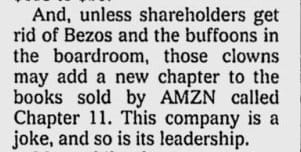
"And unless shareholders get rid of Bezos and the buffoons in the boardroom, those clowns may add a new chapter to the books sold by AMZN called Chapter 11. This company is a joke and so is its leadership.”
The same author of that article made this bold prediction:
"Meanwhile, the Amazon zero coupon senior notes due May 2008 trade at $500 per $1,000 face value. The bonds begin paying 10 percent interest in November 2003. Frankly, unless new management takes the helm, I have strong doubts that AMZN will be sufficiently solvent to make interest payments on those notes."
Over the years, Amazon has faced numerous predictions that its big bold bets and disruptive thinking would face certain failure. Barrons', for example, called it Amazon.Bomb, noting on May 31, 1999 that "The idea that Amazon CEO Jeff Bezos has pioneered a new business paradigm is silly. He's just another middleman, and the stock market is beginning to catch on to that fact. The real winners on the Web will be firms that sell their own products directly to consumers. Just look at what's happening at Sony, Dell, and Bertelsmann." Oops.
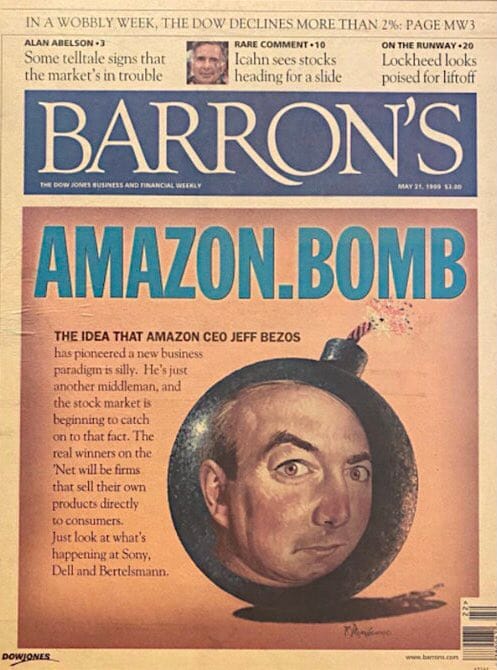
Oops.
The thing is, despite all the naysaying, Jeff Bezos stuck to his plan, noting that he still saw the business succeeding despite the dramatic downturn of the dot.com crash of 2000.
"The pioneering internet bookstore he founded in his garage made him a darling of Wall Street and Time's person of the year. Then on Friday Jeff Bezos saw the value of his company cut by a fifth. He tells Jane Martinson why he still believes Amazon.com will one day sell us everything. Amazon.bomb: How the internet's biggest success story turned sour, July 27, 2020."
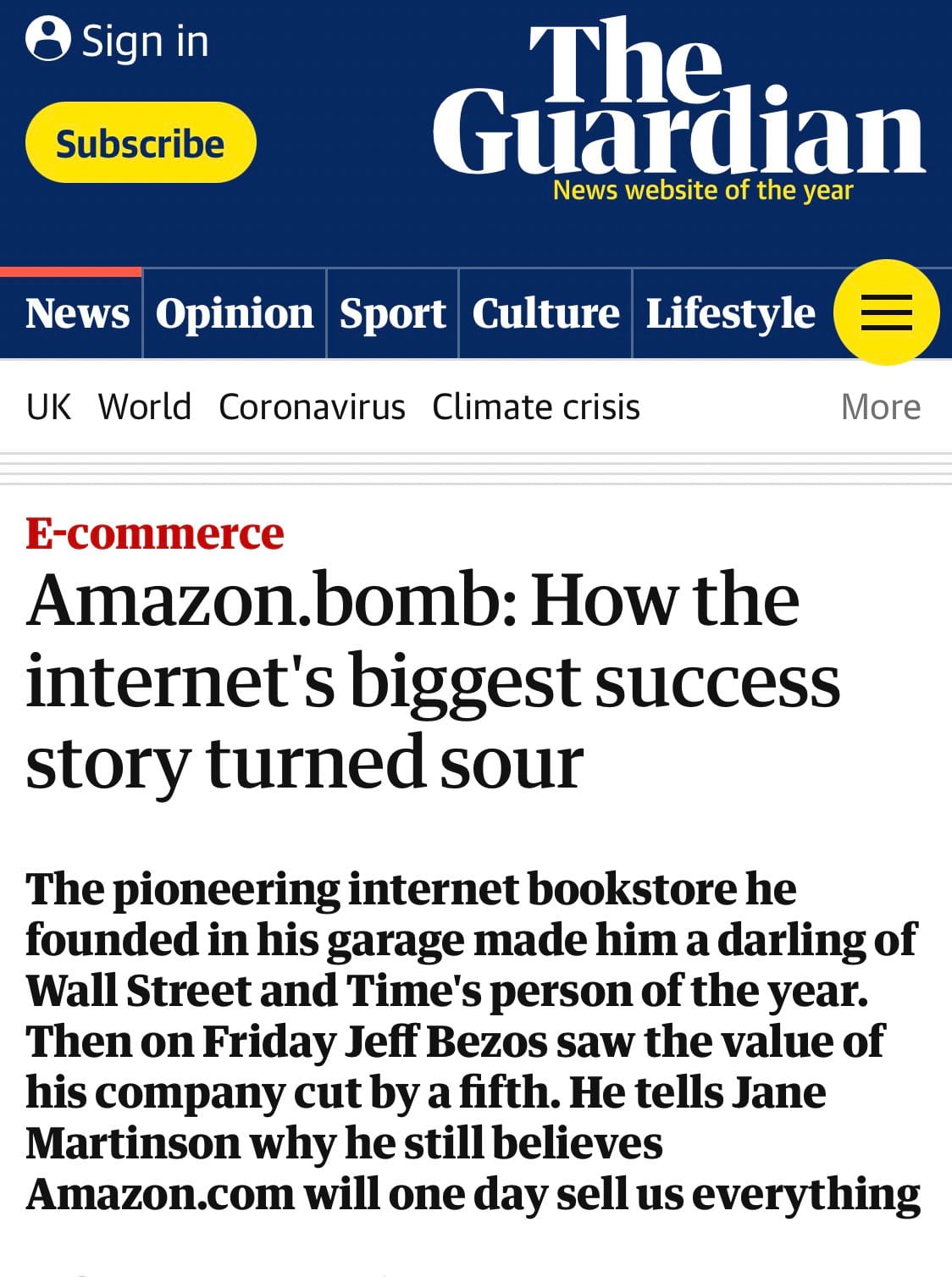
Back to their investment in AI - The attitude of the CFO says it all. Dive in, Figure it out. Stick to the plan. Take the bold bet. Why? Because they perceive AI to be a significant growth market.
"The increase represents a new era of expansion for Amazon, in which investing in cutting-edge cloud equipment is more critical to its growth than developing its network of retail warehouses."
How big is the bold bet? Big!
Amazon's cloud business has long been the company's profit engine, and AI is expected to catapult demand for cloud computing to new heights. Executives are aiming to take advantage of the AI boom, which relies on cloud services because of the intensive computing resources required. Amazon expects tens of billions of dollars in revenue from AI in the next several years."
What can you learn from all this? The attitude! Dive in! Figure it out!
It's better to get involved in a fast-moving future without a plan, instead of trying to figure out a plan for a fast-moving future.
Never forget that!
Futurist Jim Carroll wrote a book about e-commerce in 1999. Many people told him that the whole idea of online shopping was pretty dumb. 25 years later....

